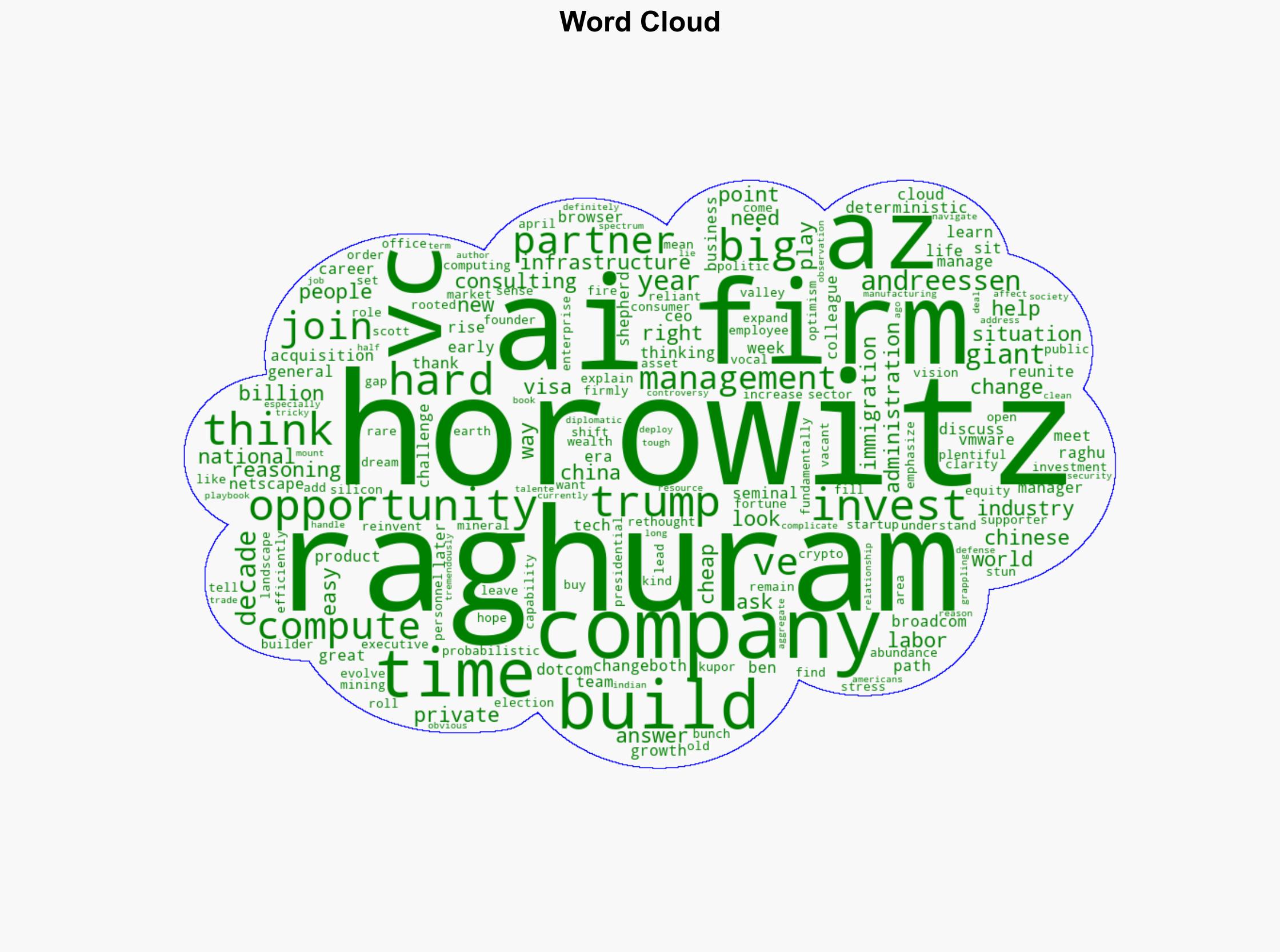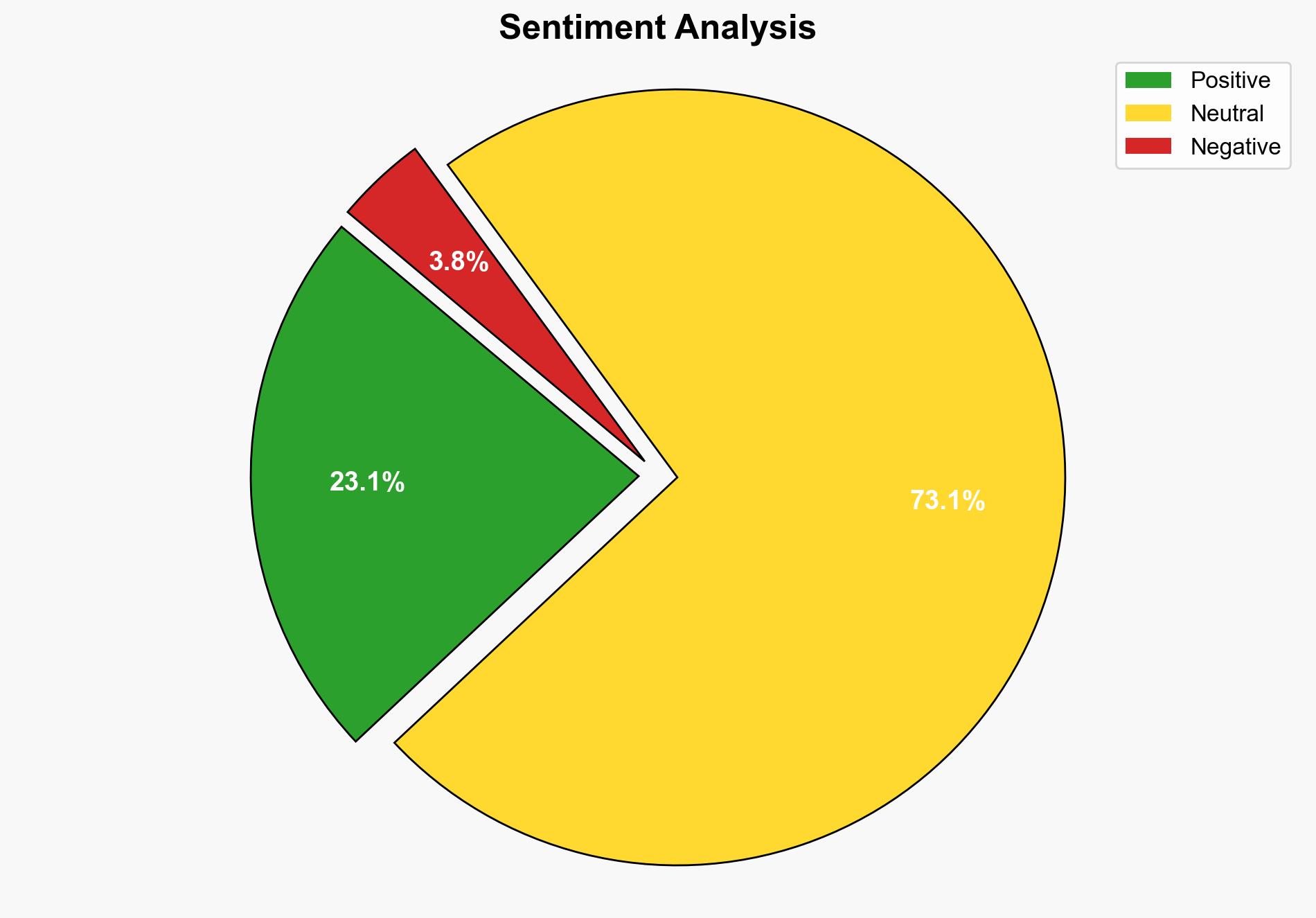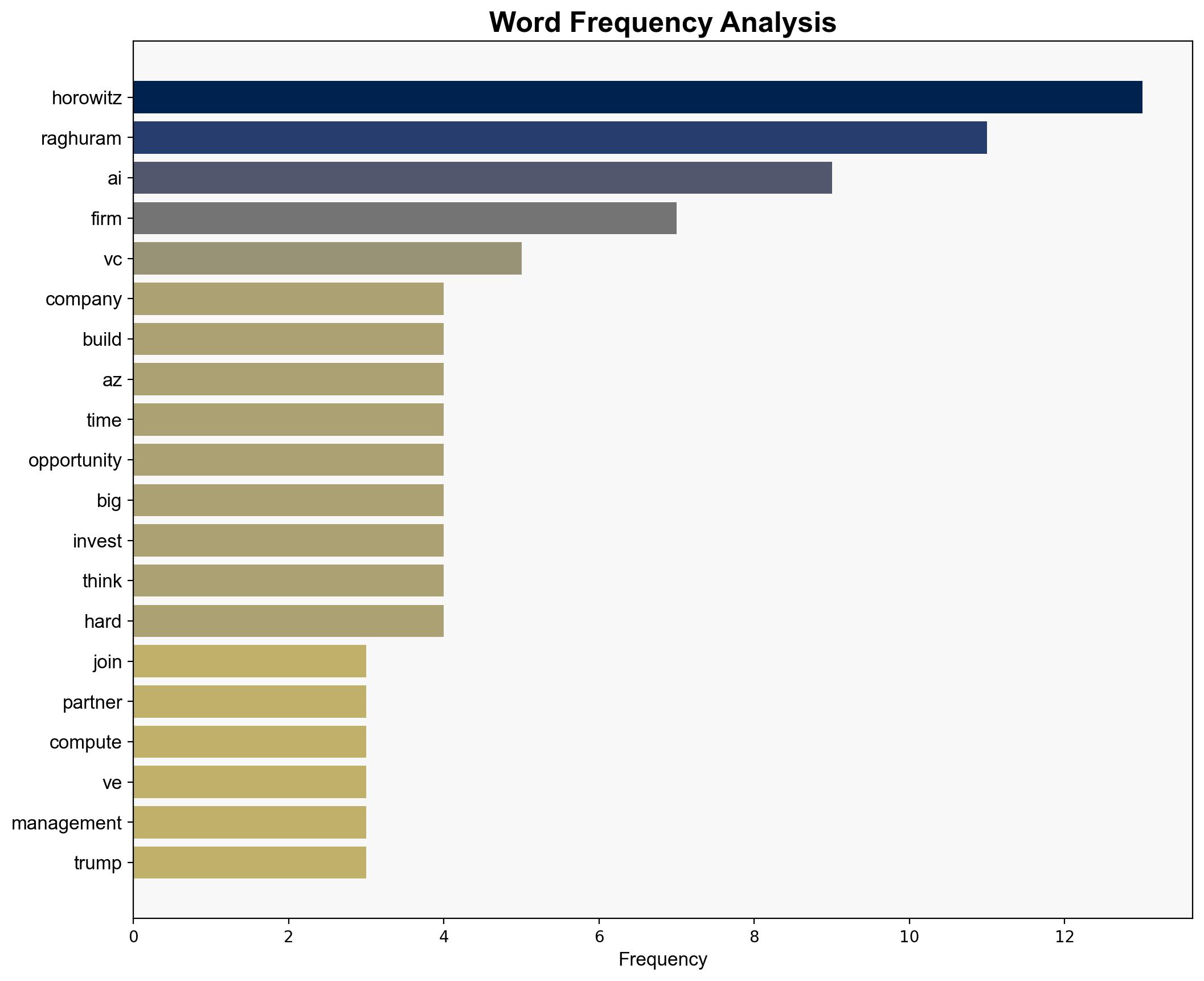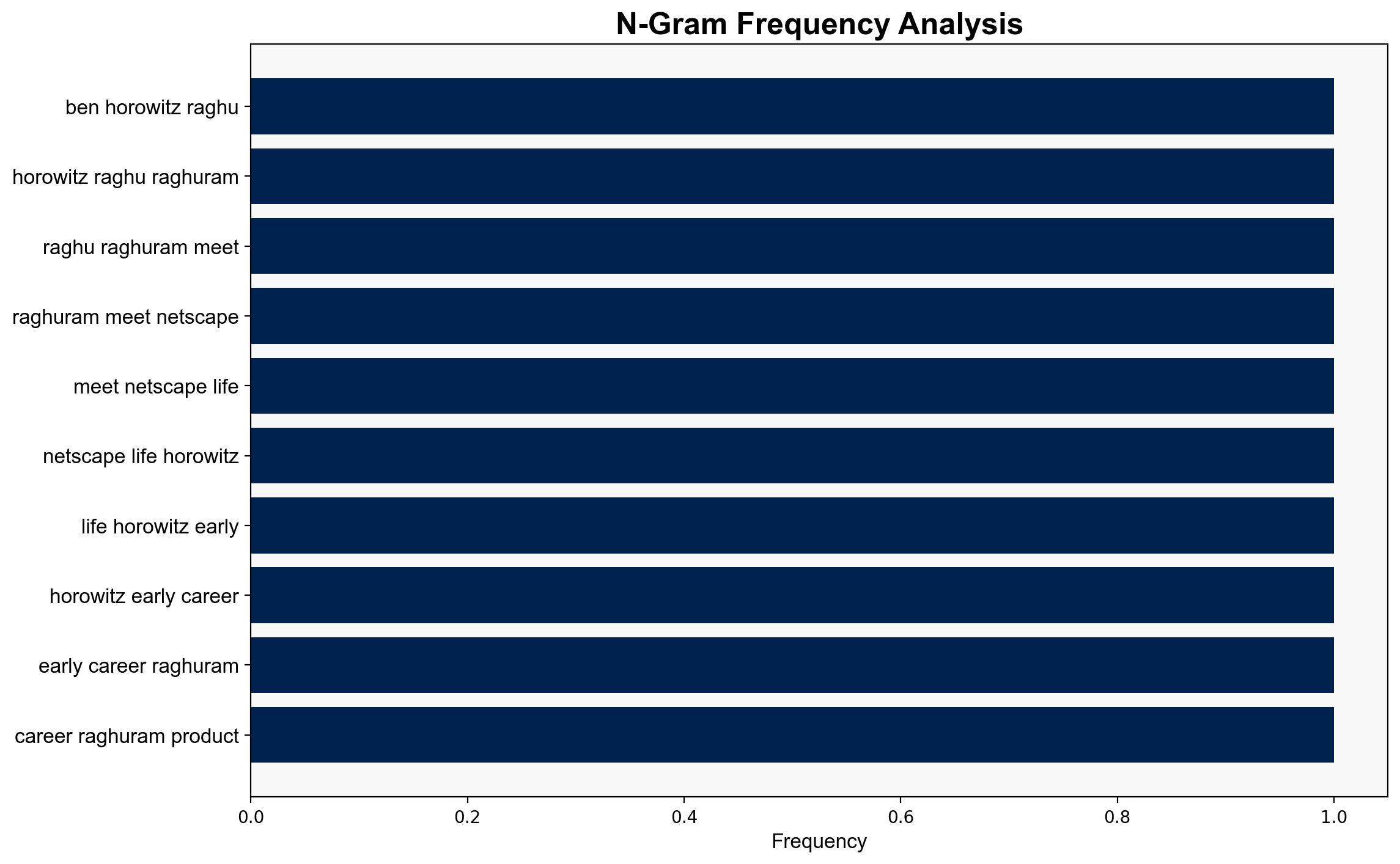Ben Horowitz and Raghu Raghuram on AI politics and the questions they dont have easy answers to – Fortune
Published on: 2025-10-12
Intelligence Report: Ben Horowitz and Raghu Raghuram on AI politics and the questions they don’t have easy answers to – Fortune
1. BLUF (Bottom Line Up Front)
The most supported hypothesis is that the integration of AI into venture capital and technology sectors will fundamentally alter business models, emphasizing a shift from deterministic to probabilistic computing. This transformation presents both opportunities and challenges, particularly in terms of workforce displacement and geopolitical tensions. Confidence Level: Moderate. Recommended action includes strategic investment in AI-driven innovation while preparing for potential socio-economic disruptions.
2. Competing Hypotheses
1. **Hypothesis A**: AI will drive a fundamental shift in the venture capital and tech industries, leading to new business models and opportunities, particularly in AI infrastructure and reasoning capabilities.
2. **Hypothesis B**: The rise of AI will exacerbate existing geopolitical and socio-economic tensions, particularly regarding employment, immigration, and international relations with China.
Using Cross-Impact Simulation, Hypothesis A is better supported due to the current trends in AI investment and the strategic focus of key industry players on AI infrastructure. However, Hypothesis B remains plausible given the geopolitical landscape and historical tensions.
3. Key Assumptions and Red Flags
– **Assumptions**: It is assumed that AI will continue to advance without significant regulatory or ethical barriers. Additionally, it is presumed that AI’s economic benefits will outweigh potential job losses.
– **Red Flags**: The potential for regulatory pushback on AI deployment and the risk of geopolitical conflicts, particularly with China, could disrupt AI’s trajectory. The assumption that AI will seamlessly integrate into existing business models may overlook potential resistance from traditional sectors.
4. Implications and Strategic Risks
– **Economic**: AI could lead to significant productivity gains but also disrupt labor markets, necessitating retraining and education initiatives.
– **Geopolitical**: Increased AI adoption may heighten tensions with China, particularly in technology and trade sectors.
– **Cyber**: AI’s integration into critical infrastructure could introduce new vulnerabilities, necessitating robust cybersecurity measures.
– **Psychological**: Public perception of AI, particularly regarding job displacement, could influence policy and consumer behavior.
5. Recommendations and Outlook
- Invest in AI-driven startups and infrastructure to capitalize on emerging opportunities.
- Develop workforce retraining programs to mitigate job displacement risks.
- Engage in diplomatic efforts to manage international tensions, particularly with China.
- Implement robust cybersecurity frameworks to protect AI-integrated systems.
- Scenario Projections:
- Best: Seamless AI integration with economic growth and minimal disruption.
- Worst: Geopolitical conflicts and significant job losses due to AI.
- Most Likely: Gradual AI adoption with mixed economic and social impacts.
6. Key Individuals and Entities
– Ben Horowitz
– Raghu Raghuram
– Andreessen Horowitz
– VMware
– Broadcom
7. Thematic Tags
national security threats, cybersecurity, AI integration, geopolitical tensions, economic transformation




